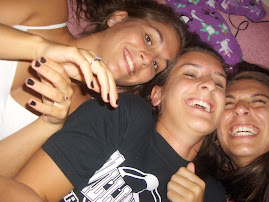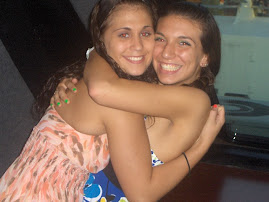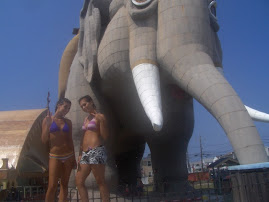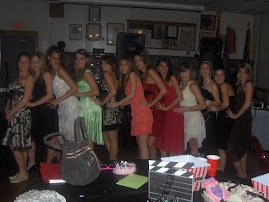Thursday, May 21, 2009
One Flew Over the Cuckoo's Nest #3
Nurse Ratched is a character that encounters no changes whatsoever throughout the book. She begins as a scheming, manipulative agent of the Combine and remains so at the novel's conclusion. Her depiction resembles the villains of comic books and fairy tales, but it is a scary thought that some people do share her beliefs and characteristics. Much of Ratched's character is apparent in her name. McMurphy pronounces it "Rat-shed" earlier in the novel, indicating that she possesses rodent-like qualities of working quietly, quickly, and to the disadvantage of her victims. The reader is reminded that rats were the carriers of the Black Plague during the Middle Ages, and Ratched infects the hospital's orderlies, student nurses, public relations personnel, and patients with her irrational desire for order. I think the name Ratched is a pun of the word “ratchet”. Ratched is both a verb and a noun for a device that uses a twisting motion to tighten bolts into place. It fits her character because Ratched manipulates the patients and twists them to spy on one another and expose each other’s weaknesses in group-sessions. It is strange that Kessey decides to name her in comparison to a tool because like a ratchet, a gear in the Combine, she is herself mechanically enmeshed. Chief describes Ratched by saying; she "tends to get real put out if something keeps her outfit from running like a smooth, accurate, precision-made machine. The slightest thing messy or out of kilter or in the way ties her into a little white knot of tight-smiled fury." Chief goes on to describe her as resembling a doll on the outside, but mechanized and steel underneath. Her expressions are always "calculated and mechanical." In some ways, she strives to be masculine and have complete control over these men. She succeeds because she makes them believe they are little boys and that she has endless power over them. She also hides her gender from the world by obscuring her large breasts as much as possible behind the sterility of a white nurse's uniform. It’s a shame that McMurphy had to die in the end, because he was the only hope for the hospital. He did show Nurse Ratched’s weak side though before he died. I think she feels that she won, but in reality he died as a martyr and will be remembered by all in that hospital.
Wednesday, May 20, 2009
One Flew Over the Cuckoo's Nest #2
When we read aloud in class, a part that stood out to me was when they all went fishing. The trip seemed really therapeutic and it made me wonder why Nurse Ratched would allow a trip if it made the patients happy. When the gas station attendant tries to intimidate the patients and the doctor into accepting services they do not want, comes to their rescue, once again, by showing them how their identity as mental patients can be used to their advantage. Instead of being made to feel afraid, they can inspire fear in others by exaggerating their insanity. tries to teach the other patients another way to cope with the outside world, without using an approach of total conformity. However, when they arrive at the docks, they are too timid to answer the insults of the seamen without the support of McMurphey. Once they are out to sea, McMurphy refuses to step in and aid the patients. He leaves them to manage things for themselves, and, to their surprise, they find they do not actually need his help. They begin to see themselves as men, not as feeble mental patients. When the patients return to the docks, they realize that they have proven something to themselves and to the outside world, and the seamen are impressed by their large catches from the sea. I think that McMurphey really does want to best for these people and he's trying to let them know that he is on their side. I think for a while he was mad at them because he thought these people were at the hospital because they were sent there. When he found out that they brought themselves to the hospital it made him angry because they always depend on McMurphey but he could become committed so he stopped himself from acting out.
One Flew Over the Cuckoo's Nest #1
As I started reading One Flew Over the Cuckoo's Nest, it was interesting to me on how Kesey used the words "sick", "healthy", "sane", and "insane". The people in the hospital that he claims sane are obviously not, but in retrospect they are able to function more than they committed people. I also took into account that Chief is the narrator and he committed at the hospital. I'm not sure whether I like Chief narrating because he seems to talk in a stream of consciousness. It's difficult to analyze the full story because I seem to believe that he is the one who is the most insane. I don't understand how he can consider himself relatively "normal" when he has been pretending to be deaf so he can spy on people. Bromden sees modern society as an oppressive, mechanizing force, and he views the hospital as a repair shop for the people who do not fit into their roles as cogs in the machine. He is always comparing the hospital to a sort of factory and his daily activities produce a fog in his head. His way of interpreting the world emphasizes the social pressure to conform. Those who do not conform to the rules and conventions of society are considered defective products of the “schools, churches, and neighborhoods.” Those people are labeled mentally ill and sent for treatment. The hospital is normally defined as the place where the ill go to be cured. However, in the cases of Ellis, Ruckly, and Taber, the cure—being in the psychiatric hospital—is obviously worse than the disease. Ellis and Ruckly are considered “failures,” but Taber is considered a success. However, it is hard to tell the difference between the cured and sick patients. Taber, the cured patient, functions like a robot incapable of independent thought after he leaves the hospital; as such, he fits perfectly into society. I think the hospital can be considered an evil force that is trying to control peoples' original thoughts so all society can be one uniformed thought and action. Nurse Ratched is the dictator and has all the doctors and patients wrapped around her finger. When the slightest bit of hope of rebellion emerged in the hospital doors with McMurphey, she overpowered him and settled him down.
Saturday, May 2, 2009
Hamlet: Analysis of Queen Gertrude
For this post, I decided to focus on a character that I feel does not receive enough recognition throughout the play. It was really difficult to pinpoint the different emotions and needs of Queen Gertrude throughout the play. I always questioned her honesty and to me she seemed a little naive and caught up in a very controversial love. She caused a lot of uncertainty and doubt in her character because Shakespeare never really gives the full truth and detail like he does with Hamlet or Claudius. The play seems to raise more questions about Gertrude than it answers. Some questions that I faced while reading Hamlet were: Was she involved with Claudius before the death of her husband? Did she love her husband? Did she know about Claudius’s plan to commit the murder? Did she love Claudius, or did she marry him simply to keep her high station in Denmark? Does she believe Hamlet when he insists that he is not mad, or does she pretend to believe him simply to protect herself? Does she intentionally betray Hamlet to Claudius, or does she believe that she is protecting her son’s secret? Some of these questions I answered while forming my own opinion of her, but they are merely assumptions and I think that is how Shakespeare wanted it to be. The side of Gertrude that seems to stand out immediately is a woman who is defines by her desire for affection and lust, as well as by her tendency to use men to fulfill her instinct of sexual desire. This of course would make her extremely dependent on the men in her life. I feel she longs for the attention and loves the feeling of being desired. By knowing this important quality about her, I assumed that she was involved with Claudius, her late husbands brother, before Claudius poisoned him to take over his throne. With regards to her being an accomplice or even aware of Hamlet Sr.'s murder, I am still confused about that. When Hamlet finally questions his mother in her bed chambers, he says many harsh things to her. He basically shows a picture of both of her husbands and compared aloud the horrible characteristics of one, and the magnificent qualities of the other. He tells her that at her age she is not to be looking for lust and sexual attraction. She is supposed to be thinking with her senses and make responsible, logical decisions about the future of her kingdom. Gertrude responds with a familiar metaphor saying how Hamlet's words are making her look into her own soul, and she sees black and molded spots where her heart used to be. I can't decipher whether this is because of guilt of the murder of her late husband, or she is realizing that her love for King Claudius is only physically based. She never exhibits the ability to think critically about her situation, but seems merely to move instinctively toward seemingly safe choices, as when she immediately runs to Claudius after her confrontation with Hamlet. She is at her best in social situations, when her natural grace and charm seem to indicate a rich, rounded personality. At times it seems that her grace and charm are her only characteristics, and her reliance on men appears to be her sole way of capitalizing on her abilities.
Monday, April 13, 2009
Hamlet Act II
Victoria Becker
Hamlet: Act II Commentary
If Hamlet is only pretending to be mad, as he claims, he does almost too good a job of it. His performance is so convincing that it makes me think perhaps he is a bit shaken from seeing his father's ghost. However, the keen and cutting observations he makes while supposedly insane support the view that he is only pretending. He declares, "I am but mad north-north-west: when the wind is southerly I know a hawk from a handsaw". That means, he is only "mad" at certain times, and the rest of the time he knows what he is doing. But he is certainly confused and upset, and his confusion makes him appear in an intense state of mind.
Claudius is not a proper ruler. Claudius is more concerned about threats from within his own country and Hamlet than running his country. Claudius actually allows Fortibras to ride through Denmark on his way to attack Poland. To me this seems like a trick and a huge threat of the possibility that the King of Norway is trying to trick Claudius into actually allowing a hostile army into his country. Meanwhile, Hamlet is technically the future King of Denmark and he is not taking the proper action of a King either. As I was reading this on my own, I admired Hamlet's quick, sarcastic, clever responses, but now I think he is immature and doesn't think in the long term. I think Hamlet is playing games and not thinking about potentially becoming King. Ultimately, Fortibras is the ideal King in this play. He is creating strategies and attempting to conquer land. I do not know the end of this play, but I am assuming that Claudius loses his power and land to Norway.
Another thing that I thought was interesting and a little hard to follow in Act II was the "play in a play". It shows a lot of symbolism because maybe Shakespeare is trying to say that maybe real-life in certain ways is theater and acting. I think the only reason Hamlet is writing the play is to catch Claudius feeling guilty about the murder of Hamlet Sr. He actually stages the plot around how his father was murdered and he is convinced that Claudius will show some sign of guilt or disbelief when he sees this. He says: "The plays the thing wherein I'll catch the conscience of the King". I don't feel this is a smart idea because it will cause a scene and make things worse. From the beginning, I've felt that Hamlet should just confront his problems. He should have went up to Claudius and his mother and told him what he knew. Like I said, I have a feeling how this play will end, but it makes me a little angry because it's hardly realistic.
Hamlet: Act II Commentary
If Hamlet is only pretending to be mad, as he claims, he does almost too good a job of it. His performance is so convincing that it makes me think perhaps he is a bit shaken from seeing his father's ghost. However, the keen and cutting observations he makes while supposedly insane support the view that he is only pretending. He declares, "I am but mad north-north-west: when the wind is southerly I know a hawk from a handsaw". That means, he is only "mad" at certain times, and the rest of the time he knows what he is doing. But he is certainly confused and upset, and his confusion makes him appear in an intense state of mind.
Claudius is not a proper ruler. Claudius is more concerned about threats from within his own country and Hamlet than running his country. Claudius actually allows Fortibras to ride through Denmark on his way to attack Poland. To me this seems like a trick and a huge threat of the possibility that the King of Norway is trying to trick Claudius into actually allowing a hostile army into his country. Meanwhile, Hamlet is technically the future King of Denmark and he is not taking the proper action of a King either. As I was reading this on my own, I admired Hamlet's quick, sarcastic, clever responses, but now I think he is immature and doesn't think in the long term. I think Hamlet is playing games and not thinking about potentially becoming King. Ultimately, Fortibras is the ideal King in this play. He is creating strategies and attempting to conquer land. I do not know the end of this play, but I am assuming that Claudius loses his power and land to Norway.
Another thing that I thought was interesting and a little hard to follow in Act II was the "play in a play". It shows a lot of symbolism because maybe Shakespeare is trying to say that maybe real-life in certain ways is theater and acting. I think the only reason Hamlet is writing the play is to catch Claudius feeling guilty about the murder of Hamlet Sr. He actually stages the plot around how his father was murdered and he is convinced that Claudius will show some sign of guilt or disbelief when he sees this. He says: "The plays the thing wherein I'll catch the conscience of the King". I don't feel this is a smart idea because it will cause a scene and make things worse. From the beginning, I've felt that Hamlet should just confront his problems. He should have went up to Claudius and his mother and told him what he knew. Like I said, I have a feeling how this play will end, but it makes me a little angry because it's hardly realistic.
Sunday, March 29, 2009
Hamlet Scenes I & II
After reading the first two scenes of Hamlet, I don't feel that anything significant happened that I can analyze. It was interesting that Shakespeare started the play with an appearance from the ghost of Old Hamlet. It's obvious that Hamlet was mourning the loss of his father and wanted to talk to the ghost. I don't really understand why Shakespeare would include a ghost in his play, it doesn't really make the play believable or relatable in anyway. The setting throughout the first scene was very dark and gloomy, which might signify what will happen throughout the rest of the play. I feel that the ghost of Old Hamlet classifies this play as a tragedy because Hamlet is very concerned and distraught about losing his father and that his mother re-married to his uncle. He behaves erratically and upsetting the other characters with his wild speech and pointed innuendos. He almost hates his mother and ridicules her for showing no anguish for the death of his father, her husband. Hamlet promises himself to seek revenge and proves his uncle guilt for killing his father. These negative things expand the distance between Hamlet and his mother, as well as his uncle, King Claudius. It builds a gate between love and hate for Hamlet's life. It is tough for Hamlet to face them. He can not decide whether to continue live in a hate world or to take his own life. He says: “Together with all forms, moods, and Shapes of grief that defines me truly. T's not alone my inky cloak, good mother, nor customary suits of solemn black, nor windy suspiration of forced breath, no, nor the fruitful river in the eye.” Due to the state of Hamlet's emotions and the appearance of his father's ghost, this will trigger a sense of curiosity in Hamlet. I feel that throughout the play, Hamlet will converse with the ghost and maybe a plan of revenge will emerge. Overall, the first two scenes didn't reveal many important character analysis. It was basically setting up the plays conflict and plot without tuning into Hamlet's emotions.
Monday, March 23, 2009
Coleridge/Shelley Romantic Poetry
1) The power of the imagination is often represented in Romantic poetry. In my opinion, "Kubla Khan" doesn't really celebrate imagination; it warns people of its indulgence. This poem is about high-energy and life. He doesn't focus on one part of his dream, he talks about everything and anything in this poem. He talks about the intense power of his dream, but it isn't as detailed because he includes everything, in a way the poem is way too vast. For example, "so twice five miles of fertile ground" and "and all should cry, Beware! Beware! His flashing eyes, his floating hair!". These lines show the variety of everything. Coleridge fell asleep after taking opium and dreamt about what is happening in this poem. When he woke up, he wrote about these things and his mind was probably all over the place so he couldn't center around a certain topic. It is not good to imagine things that are that vivid and intense, and this is probably a direct result of the drugs that he took. The poem cautions us about desires and wishing too much. Coleridge may be writing for all people because the poem alludes to deep human desires. He may think that all humans are selfish and expect way too much. Some things that Coleridge may feel humans want too much of are pleasure, control, power, lust, appearance, and war. So even though his dream was a direct result of an overactive imagination and opium, he still points out some very interesting points about humans' actions.
2) In the sonnet, "Ozymandias", there are four speakers. There is the main speaker, the sculptor, the traveler, and the King. While reading the story, the different voices mean different things to me. The main speaker was basically the narrator telling the tale that the traveler "from an old antique land" told him. He never experienced seeing the crumbled ruins, but he truly believed what the traveler told him, and therefore passed the story along to us. The sculptor created the sculpture of King Ozymandias. He understood the emotions and desires of the King so therefore he made the face of the King with a "frown and wrinkled lip and sneer of cold command". King Ozymandias was very spoiled and ignorant. He bragged about his lifestyle and was extremely boastful. His words on the pedestal are a perfect example to his behavior: "My name is Ozymandias, king of kings, look on my works, ye Mighty, and despair!" I feel this sonnet was very ironic towards the end because the King's statue crumbled and fell, as with his "empire". His tragic flaw (pride) got the best of him and now he is left alone with his shame.
2) In the sonnet, "Ozymandias", there are four speakers. There is the main speaker, the sculptor, the traveler, and the King. While reading the story, the different voices mean different things to me. The main speaker was basically the narrator telling the tale that the traveler "from an old antique land" told him. He never experienced seeing the crumbled ruins, but he truly believed what the traveler told him, and therefore passed the story along to us. The sculptor created the sculpture of King Ozymandias. He understood the emotions and desires of the King so therefore he made the face of the King with a "frown and wrinkled lip and sneer of cold command". King Ozymandias was very spoiled and ignorant. He bragged about his lifestyle and was extremely boastful. His words on the pedestal are a perfect example to his behavior: "My name is Ozymandias, king of kings, look on my works, ye Mighty, and despair!" I feel this sonnet was very ironic towards the end because the King's statue crumbled and fell, as with his "empire". His tragic flaw (pride) got the best of him and now he is left alone with his shame.
Subscribe to:
Comments (Atom)





.jpg)














